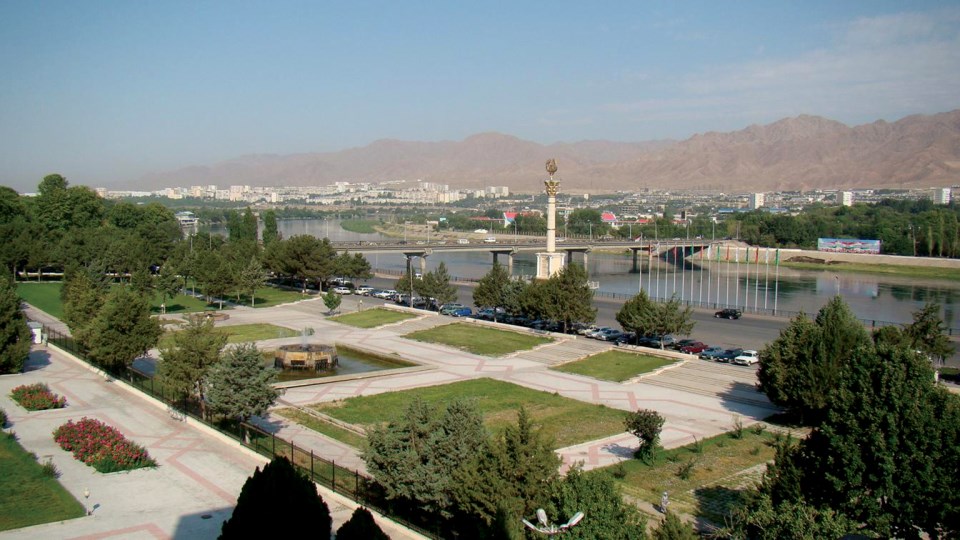Denis Rogers and I were off to do some relief work. We were sponsored by Reg Davis, a Sechelt mining engineer. There was nothing very remarkable about our flight experiences with Tyee Air, Air Canada and Lufthansa – the usual good facilities, standards and service. Then we landed in Tashkent, Uzbekistan, at midnight. We walked across the tarmac into a dark, drab, concrete terminal, which reeked strongly of urine. The toilets weren’t working – you can visualize the rest! The customs officers were very unhelpful and unfriendly. At the crucial moment, an American aid worker, who spoke Russian, helped us through.
Then into the National terminal, which was sheer chaos. People were flying to the various “Stan” countries in the region. Goats, sheep and chickens were being carried onto the plane by the passengers. We were to be met by Sasha, who was fluent in 11 languages, including English.
We were becoming increasingly alarmed as time passed and no Sasha appeared. Finally a man approached us and inquired hesitantly, “Canada?” Much relieved, we nodded happily and he pointed to himself with the word Max. On the six-hour trip by car to Khujand, we more than once wondered if we were in the right vehicle. Each time we expectantly inquired “Sasha?” he grinned and nodded in reply. We resigned ourselves to whatever.
At the Tajikistan border, we recognized the word Canada being used, and immediately several officers, with rifles carelessly waving about, came to stare at us from very close range. They had never seen a Westerner before. Money changed hands, and away we went.
We got to a city that we hoped was Khujand about 6 a.m. and were taken to a large tent, full of men, about to start on a feast. Our group was greeted with much bowing and other signs of respect. We had planned on being careful with what we ate and drank, for fear of catching some exotic illness, but had no choice but to tuck into a scrumptious banquet, along with everyone else. In 20 minutes, we were done, and after much bowing – which we quickly learned to do – we drove off. After another 30 minutes, we had an identical experience, in another part of the city – more bowing and more food. We were entertaining the thought that this was all in our honour – until John showed up. John was professor of English languages at the university, and was to be our interpreter.
We were relieved to find that we were indeed in Khujand and that we had been met at the airport by three doctors and a driver, all specialists, as it turned out (although Sasha was a no-show). John was available, because all students over the age of 12 were out picking cotton. Schools were closed. Machinery was unavailable because of a shortage of gas.
John told us we had just been to two wedding feasts, always held at dawn. And we were now going to meet the hospital medical staff for breakfast! We prayed for strength – three huge meals in three hours.
The provincial governor showed up as well. Tajikistan had just experienced their first year of being an independent country, after the break-up of the Soviet regime. They had been subjugated by some power or other for almost 1,000 years, and they were finally learning about the outside world. Their vision of Canada was a combination of Wild West and Hollywood – a land of milk and honey. When the Governor found out we had not brought them mega-dollar gifts, he lost interest in us. In fact, we had brought about $800 worth of medical stuff and also lipstick and nylons for the nurses and toys for the children, which turned out to be a stroke of genius.
We were each assigned an interpreter. I got John, and Denis got Yulia, a very pretty student of John’s. This produced a “ha ha, gotcha” grin from Denis, and a spring in his step. When Yulia found out Denis had three single sons, it produced a spring in her step. We were now ready to go to work.



